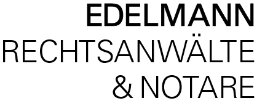Best ADR Mediation & Arbitration Lawyers in Bremgarten
Share your needs with us, get contacted by law firms.
Free. Takes 2 min.
List of the best lawyers in Bremgarten, Switzerland
About ADR Mediation & Arbitration Law in Bremgarten, Switzerland
Alternative Dispute Resolution (ADR) such as mediation and arbitration, offers effective ways to resolve disputes outside the conventional court system. In Bremgarten, Switzerland, ADR plays a significant role in addressing civil, commercial, employment, and family disputes. Mediation involves a neutral third party who helps the disputing parties negotiate a mutually acceptable solution. Arbitration involves an arbitrator or a panel who reviews the facts and makes a legally binding decision. ADR methods are favored for their efficiency, confidentiality, flexibility, and the ability to preserve business and personal relationships.
Why You May Need a Lawyer
While ADR processes are generally more informal than court proceedings, legal guidance is often crucial. Common situations where a lawyer's assistance may be needed include interpreting complex agreement clauses, drafting settlement terms, selecting appropriate mediation or arbitration rules, representing clients during sessions, or enforcing an arbitral award in court. A lawyer ensures you understand your rights and obligations, helps you avoid pitfalls, and strives for a fair and effective resolution. Businesses, landlords, employees, family members, and neighbors in Bremgarten frequently seek legal help when disputes arise to ensure their interests are well represented during mediation or arbitration.
Local Laws Overview
ADR practices in Bremgarten operate within the framework of Swiss law. Switzerland’s Civil Procedure Code governs mediation and domestic arbitration, while the Swiss Private International Law Act applies to international arbitration. Parties are generally free to choose their mediator or arbitrator, as well as the manner in which the mediation or arbitration will be conducted. However, certain restrictions may apply to ensure fairness and legality. In some cases, courts may refer parties to mediation or enforce written arbitration agreements. Agreements reached through ADR are legally binding when formalized correctly, and arbitral awards can be enforced by the courts if necessary.
Frequently Asked Questions
What is the difference between mediation and arbitration?
Mediation is a collaborative process where a mediator facilitates discussions to help parties reach a voluntary agreement. Arbitration is more formal, resembling a court process, where an arbitrator reviews evidence and issues a decision that is usually binding.
Is participation in mediation or arbitration mandatory?
Participation is typically voluntary, unless a contract clause, court order, or local regulations require the parties to attempt ADR before pursuing litigation.
Are the results of mediation or arbitration legally binding?
Mediation outcomes become binding when parties reach an agreement and formalize it in writing. Arbitration decisions are usually legally binding and enforceable in court.
Can I have a lawyer with me during ADR proceedings?
Yes, you may have a lawyer represent or advise you during both mediation and arbitration sessions. This is recommended for complex or high-stakes disputes.
How are mediators and arbitrators selected?
The parties usually select their mediator or arbitrator together. If no agreement can be reached, some institutions or courts may appoint one on behalf of the parties.
How long does mediation or arbitration usually take?
ADR processes are generally quicker than court cases. The duration can range from a few weeks for simple matters to several months for more complicated disputes.
What are the costs involved in mediation or arbitration?
Costs vary depending on the complexity of the dispute, the professional fees charged by mediators or arbitrators, and whether legal representation is involved. ADR is often less expensive than litigation.
Is ADR confidential?
Yes, both mediation and arbitration are usually confidential. This protects sensitive information and helps preserve the parties' relationships.
Can ADR resolve any type of dispute?
Most civil and commercial matters can be resolved through ADR. However, some areas, such as criminal law or certain financial disputes, may not be suitable for ADR under Swiss law.
If mediation fails, can I still go to court?
Yes, if mediation does not lead to an agreement, parties retain the right to pursue their case before a Swiss court or, if agreed, proceed to arbitration.
Additional Resources
People seeking legal advice or more information on ADR mediation and arbitration in Bremgarten can turn to several resources. The Swiss Bar Association and the Aargau Bar Association offer directories of qualified lawyers. The Swiss Chamber of Commercial Mediation and the Swiss Arbitration Association provide guidance, professional referrals, and best practice standards. The local court in Bremgarten also provides information about court-annexed mediation programs and procedures. Finally, the Swiss government’s justice portal offers explanations of ADR concepts and outlines relevant legal provisions.
Next Steps
If you require legal assistance in ADR mediation or arbitration, start by clearly outlining your dispute and the desired outcome. Gather all relevant documents such as contracts, correspondence, and previous agreements. Next, consult with a lawyer experienced in ADR who understands the local context in Bremgarten and the applicable Swiss laws. The lawyer can explain your options, assess the suitability of mediation or arbitration for your issue, and represent you throughout the process. Consider contacting local professional bodies or ADR organizations for referrals and information. Taking prompt legal advice will help you achieve a fair, efficient, and lasting resolution to your dispute.
Lawzana helps you find the best lawyers and law firms in Bremgarten through a curated and pre-screened list of qualified legal professionals. Our platform offers rankings and detailed profiles of attorneys and law firms, allowing you to compare based on practice areas, including ADR Mediation & Arbitration , experience, and client feedback.
Each profile includes a description of the firm's areas of practice, client reviews, team members and partners, year of establishment, spoken languages, office locations, contact information, social media presence, and any published articles or resources. Most firms on our platform speak English and are experienced in both local and international legal matters.
Get a quote from top-rated law firms in Bremgarten, Switzerland — quickly, securely, and without unnecessary hassle.
Disclaimer:
The information provided on this page is for general informational purposes only and does not constitute legal advice. While we strive to ensure the accuracy and relevance of the content, legal information may change over time, and interpretations of the law can vary. You should always consult with a qualified legal professional for advice specific to your situation.
We disclaim all liability for actions taken or not taken based on the content of this page. If you believe any information is incorrect or outdated, please contact us, and we will review and update it where appropriate.










